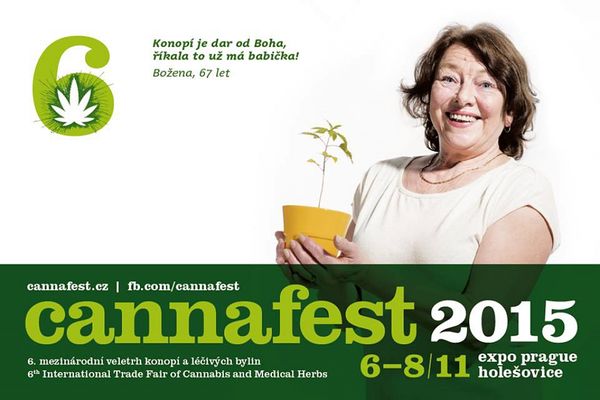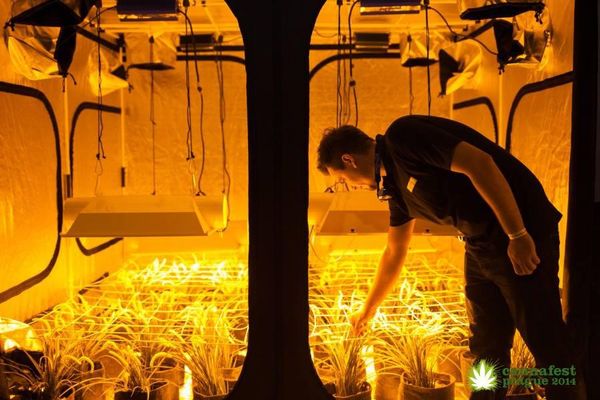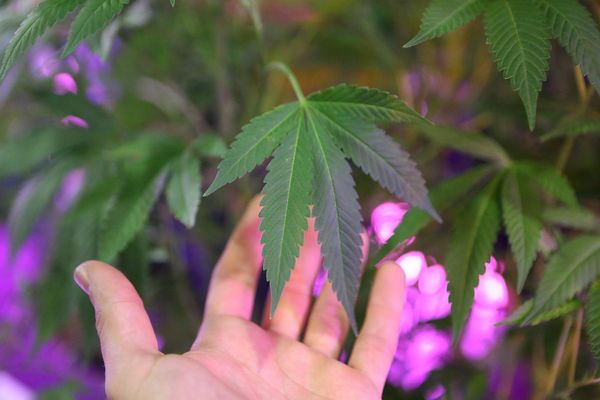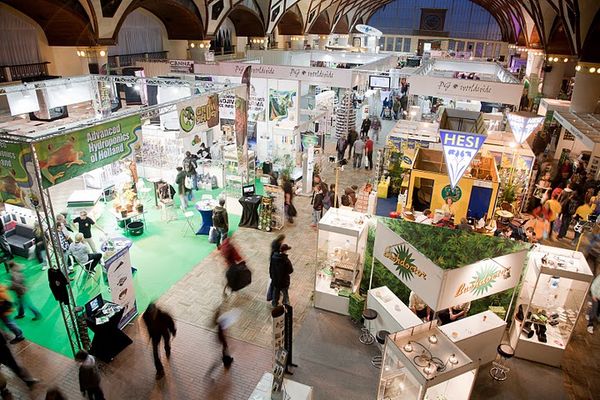- The country’s capital has become another crossroads for marijuana lovers thanks to its relaxed laws. However, activists are calling for further liberalisation, especially at a moment when it seems that the country is stagnating and even moving backwards. Sector fairs, such as Cannafest, raise awareness about the need for legalisation and explain the benefits of the plant to the public.

The Czechs are among the most significant consumers of cannabis in Europe, behind France and Spain, according to the 2014 European Drug Report. In fact, the capital alone of the Czech Republic, Prague, with 1.2 million citizens, brings together close to 400,000 smokers and is a gathering spot for any marijuana lover.
Therefore it is not surprising that, for a few years and up to now, the country has taken important stops to ensure that its cannabis policy adapts to the existence of consumers and it has become one of the most permissive countries in Europe. Currently its legal system recognises a difference in drugs made from the substance, while authorities focus on prevention, damage reduction, and rehabilitation programs.
Users exist in a framework where, although it is permissible to grow up to five plants, the consumption of marijuana is not legal. However, nor is it considered an offence from a penal point of view. In 2010 possession of small quantities of cannabis (around 15 grams) for personal use was decriminalised, although even today users can face fines of around 500 euros. Punishments for those that produce or distribute the plant can be between 1 and 8 years in prison, depending on the quantity in question.

There are many political parties that support the cannabis cause in the country. A special source of support is the Green Party. They often talk about the positive results that a regulated market could have for the state and therefore they call for complete decriminalisation. On the other hand, certain members of the Strana Svobodných Obcanu Party have also asked for legalisation, as has the political party ANO, However, the biggest supporter is the Czech Pirate Party.
In terms of medical cannabis, the country’s progress is not so clear, despite the fact that it has made a strong commitment to the product upon assessing its significant medical benefits, and that Paverl Bem, one of the authors of the law on medical cannabis, explained that his aim was to “make cannabis accessible to patients” that needed it.
In 2003 regulation came in to allow every patient to obtain 30 grams of dry product per month, only through a medical prescription, and a special electronic one for people with specific illnesses (AIDS, chronic pain, cancer, and polyneuropathies, among others). Also, the regulation stipulated that certain companies would be able to produce or import the product with a license.
However, one of the main problems for many users is that they are unable to afford the high prices of the medication that they need: unlike other medicine it is not covered by any type of insurance. A single gram costs 11 euros, therefore the cost of the maximum monthly dose rises to 330 euros.
Until now there have been many restrictions on growing, therefore it is necessary to import indica cannabis, which is why it so expensive. This has led to experts and representatives of affected patients showing their disappointment and complaining that, following several months of being on sale in pharmacies, its use has not been effective.

Also, some people believe that many sick people are being forced to obtain medication via other routes, something that was feared before the law came into effect. Therefore, and despite the fact that one year ago some people wanted to begin growing within the country, only now is the Czech Government aiming to encourage local growing of the plant in order to make the product more affordable.
On the other hand, the development of the system that allows for the dispensation of medical cannabis has been very slow: despite the fact that the law approved in 2012 came into effect in summer 2013, it was not until November 2014 when the first patient could purchase cannabis. Furthermore, and up until now, the only route of entry was through Holland, as only certain types of cannabis provided by the Dutch company Bedrocan are allowed.
For about five years now, many people have wanted to compare the Czech Republic with Holland, and there are also those that had great hopes the country would slacken its cannabis laws a bit more. For example, people hoped fines would be eradicated for possessing small quantities. However, it is still not the country that many desire. It is not surprising that the supporters of legalisation are afraid of regressing because, among other things, some sectors have proposed lowering the possession limit to 10 grams.

Additionally, the sale of marijuana is still illegal and some of the establishments that dared to provide it to clients have been affected by raids and forced to close. In 2012 the authorities placed limits on the sale of gardening products suitable for looking after plants as they thought the products could “lead clients to commit a crime”. Many of those businesses have also closed down.
Civic Support
Despite the obstacles, Czech society can be described as being very tolerant towards the plant, and civic support for legalisation has been shown on several occasions. Since 1998 the Million Marijuana March has been held on the streets of Prague, and the number of participants has grown gradually over time.
Also, since 2009 the country has hosted Cannafest, an international fair that offers the possibility to buy seeds and fertilisers and to be in contact with sellers from the cannabis world. Also, those who visit can gain a lot of technical and scientific knowledge about the qualities and uses of the plant.
This year, the gathering will take place between 6 and 8 November, and the expectations are very positive, given that in 2014, an 11,200m2 space was needed to hold almost 27,000 visitors from 21 different countries. This year’s event will bring together 163 exhibitors and it will have around twenty highly varied talks about legal, political and medical matters. And just like in previous years, Dinafem does not want to miss out. You can find us at stand 83, where we will be happy to spend time with you at this event held in Praga.

Also, there will be discussion about the different cannabis families; about the current situation on the American continent, in countries such as the United States, Chile and Uruguay; about who is winning or losing the cannabis market, and about the need to end the war against cannabis.
On the other hand, those who want to, will be able to enjoy screenings of different films and documentaries relating to the plant. Among the works on offer are: “In Pot We Trust”, “The Union: The Business Behind Getting High”, “A Normal Life” and “Bringing It Home”. Visitors will also be able to enjoy an exhibition about the history, growing, processing and artistic uses of hemp. Furthermore, anyone can take some time out in the reading room, the massage area with hemp, a vaporiser room, and even a chill out area designed for the occasion.
Czech cannabis activists are confident that nothing can harm their needs and desires. Fairs such as Cannafest help to raise awareness about the benefits that a plant such as marijuana has on health, but also to make people see that regulation is necessary too and that we should never take regressive steps.



Comments from our readers
There are no comments yet. Would you like to be the first?
Leave a comment!Did you like this post?
Your opinion about our seeds is very important to us and can help other users a lot (your email address won't be made public).